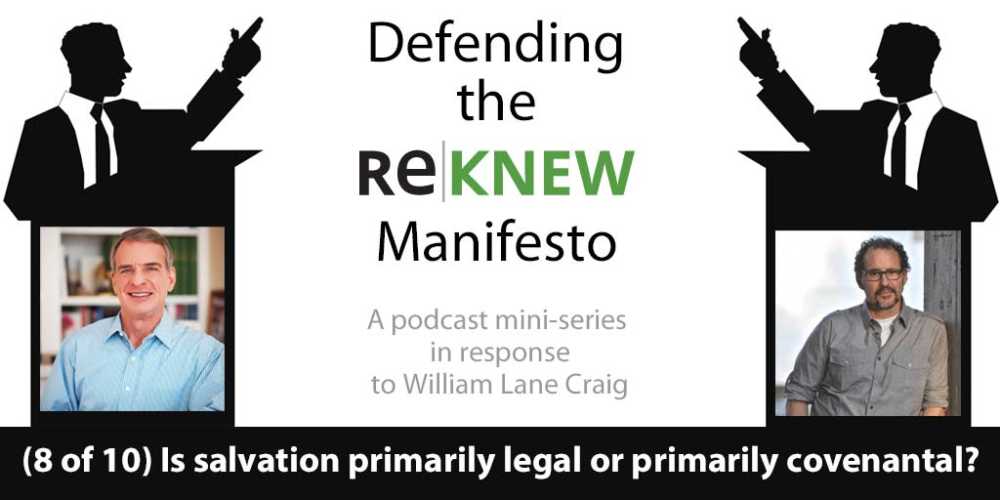We run our website the way we wished the whole internet worked: we provide high quality original content with no ads. We are funded solely by your direct support. Please consider supporting this project.
Podcast: Defending the Manifesto (8 of 10 )
Greg responds to challenges by William Lane Craig from Craig’s podcast “Reasonable Faith.“
Greg discusses salvation, specifically whether Paul understands salvation in primarily legal terms versus covenantal terms.

Send Questions To:
Dan: @thatdankent
Email: askgregboyd@gmail.com
Twitter: @reKnewOrg
Greg’s new book: Inspired Imperfection
Dan’s new book: Confident Humility
Subscribe:
Category: ReKnew Podcast
Tags: Covenant, Penal Substitution View of Atonement, Salvation
Related Reading

The Cross is Revelation and Salvation
The way Christ saved us from the curse of the law was “by becoming a curse for us” (Gal. 3:13). So too, the way Christ freed us from the condemnation of sin and enabled us to “become the righteousness of God” was by becoming sin for us (2 Cor. 5:21). Getting this point is crucial…

A Brief Theology of Salvation
In the NT, one of the most frequent and fundamental images used to depict our salvation is “redemption.” The root of this term lytron means a “ransom” or “price of release,” and the term itself (apolytrosis) was used as a kind of technical term for the purchase of a slave. If we apply this to…

Why Did Jesus Die on the Cross?
If asked why Jesus had to die on the cross, most Christians today would immediately answer, “To pay for my sins.” Jesus certainly paid the price for our sins, but it might surprise some reader to learn that this wasn’t the way Christians would answer this question for the first thousand years of Church history.…

Faith or Magic?
Many Christians today treat faith like magic. While the content of what Christians believe is obviously different from pagan practitioners of magic, the way they believe and the motive they have for believing, seems to be very similar. Magic is generally understood to involve people engaging in special behaviors that empower them to gain favor…

What “God Loves You” Actually Means
From the beginning, God chose to have a people who would be the object of his eternal love, just as Christ is the object of his eternal love. God sought to acquire a “bride” for Christ who would receive and reflect the love of the triune community (Eph 5:25-32). And the only qualification for being…

Is the Bible a Legal Textbook?
Olga via Compfight Too much theology treats the Bible as if it were legal textbook. In the following except from Benefit of the Doubt, Greg addresses the problems when we approach theology and Scripture this way. Incidentally, if you like these excerpts we’ve been posting from Benefit of the Doubt, you’re not going to want to…



